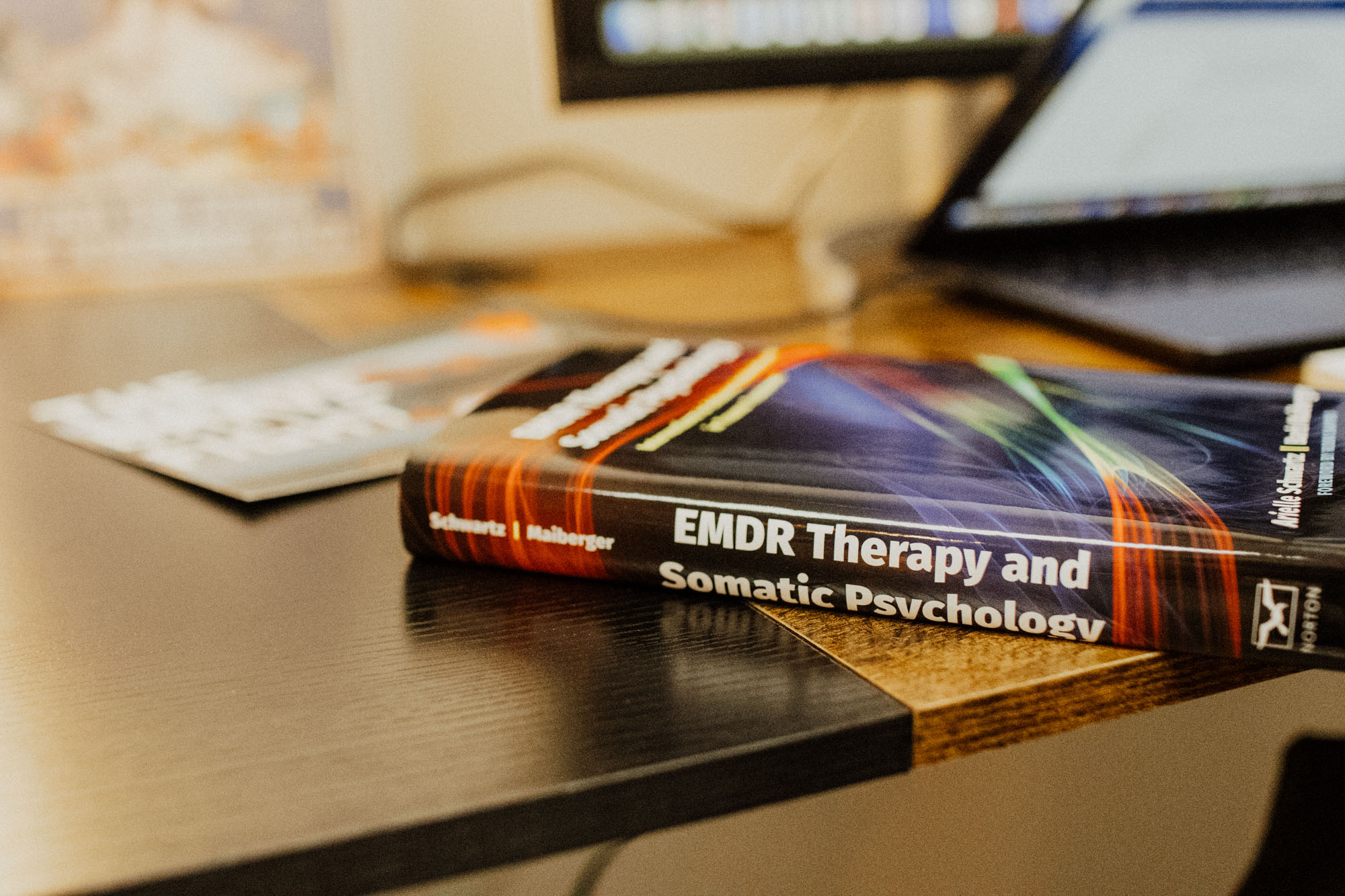


Eye Movement Desensitization and Reprocessing (EMDR) therapy is an evidence-based psychotherapy developed to help individuals process and resolve distressing memories and traumatic experiences. It is based on the premise that traumatic memories may not be processed or stored appropriately in the brain, leading to ongoing emotional distress and symptoms.


EMDR is grounded in the belief that the brain has an innate capacity to heal itself when provided with the right conditions. Through a structured therapeutic process, EMDR helps facilitate the reprocessing of traumatic memories, allowing them to be integrated into the memory network in a healthier way.

A key component of EMDR therapy involves bilateral stimulation, which can include eye movements, tapping, or auditory tones. This bilateral stimulation is believed to activate both hemispheres of the brain, facilitating the processing of traumatic memories.

EMDR therapy involves maintaining dual attention on the traumatic memory while simultaneously engaging in bilateral stimulation. This dual attention helps individuals access and process the memory in a safe and controlled manner, reducing the emotional distress associated with it.

EMDR therapy has been shown to be highly effective in reducing symptoms of trauma-related disorders such as PTSD, anxiety, and depression.

Many individuals experience significant and lasting improvements in their symptoms and overall well-being following EMDR therapy.

EMDR therapy teaches individuals practical coping skills and strategies to manage distress and regulate emotions effectively.

By processing and resolving traumatic memories, individuals can regain a sense of control over their lives and build resilience in the face of future challenges.


It has been proven effective for various conditions, including post-traumatic stress disorder (PTSD), complex trauma, anxiety disorders, prolonged grief, depression, substance use, among others. It’s important to note that EMDR should be conducted by trained, certified, and EMDRIA approved therapists.
Like any therapeutic approach, its effectiveness may vary depending on individual factors and the specific nature of the traumatic experiences being addressed. For further information about EMDR please click here.

The therapist works with the individual to identify target memories or experiences to be processed during EMDR therapy. They also provide education about the therapy process and teach coping skills to manage distress.

The individual is guided through a series of sets of bilateral stimulation while focusing on the traumatic memory. This allows the memory to be processed and integrated in a way that reduces its emotional charge and distressing impact.

Once the traumatic memory has been processed, the therapist helps the individual install positive beliefs or self-statements to replace any negative beliefs that may have arisen from the trauma.

EMDR may also involve a body scan to identify and address any residual physical sensations or tension associated with the traumatic memory.

EMDR Intensives are a specialized form of therapy that involves longer and more concentrated treatment sessions over a shorter period of time. Unlike traditional EMDR therapy, which typically consists of weekly sessions spread out over several weeks or months, intensives compress the treatment into a more condensed time frame, often spanning several consecutive days.

During an EMDR Intensive, clients undergo several hours of therapy each day, allowing for deeper immersion and focus on the therapeutic process. The therapist guides the client through the standard phases of EMDR therapy at an accelerated pace.

Before beginning an EMDR Intensive, clients will undergo an initial assessment to determine their suitability for the treatment. The therapist will then develop a personalized treatment plan tailored to the client’s needs and goals. During the intensive, clients can expect to engage in several hours of therapy each day, with breaks provided for rest and self-care. It’s essential to have adequate support and coping strategies in place to manage any emotional reactions that may arise during the intensive process.


The cost of EMDR Intensives can vary depending on factors such as the therapist’s experience, location, and the duration of the intensive. Please schedule a consultation to explore EMDR Intensives as an option.
For information about costs, check out our F.A.Q.

We’re ready to help whether you want to schedule an appointment or just have a few questions.

